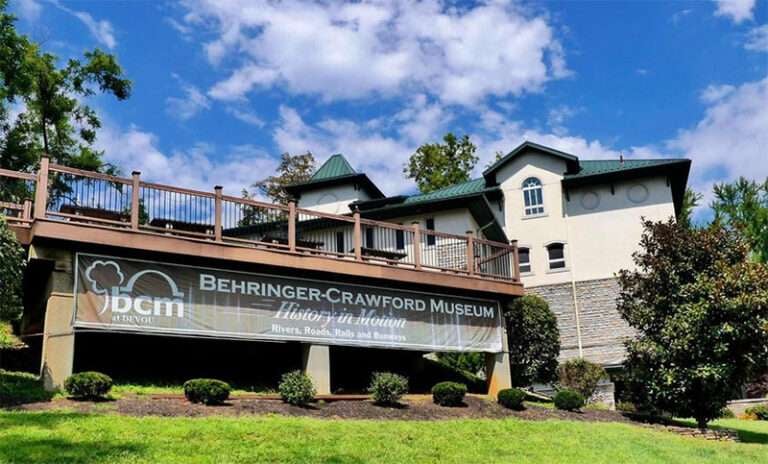The Kentucky General Assembly crossed another mile marker last week by reaching the deadline for the introduction of new bills in the State Senate.

With this deadline past us, we now have a more complete view of the issues lawmakers will take up this year. The bills address a mix of familiar issues and new problems. Some attempt to address the age-old struggle to balance the separation of church and state while others address crimes perpetrated with technology our founding fathers could only imagine. Some measures drew bipartisan support while others were vigorously debated by both parties.
One bill that passed last week was Senate Bill (SB) 106. It would permit public schools to sponsor artistic or theatrical programs that advance students’ knowledge or society’s cultural and religious heritage and traditions. A sponsor said SB 106 was in response to a school’s prohibition of scripture readings in a public school’s stage adaptation of “A Charlie Brown Christmas.”
Senate Bill 37 tackles a crime that did not exist when Kentucky’s modern statutes were drafted. It attempts to deal with youngsters under the age 18 who are caught sexting – the act of sending sexually explicit photos of themselves or other minors via mobile phones. The bill would make the first offense a Class-B misdemeanor. Subsequent offenses would be Class-A misdemeanors. Under current law, minors could be convicted of a felony for sexting and be forced to register as a sex offender.
Other issues taken up in the Senate chamber last week include:
* Senate Bill 152, called the “Ultrasound Bill” by a sponsor, would change the informed consent process required prior to an abortion in Kentucky. The bill calls for a woman seeking an abortion to receive an ultrasound and be given the option to view the ultrasound image. Doctors violating SB 152 could be fined up to $100,000 on the first violation and $250,000 for subsequent violations.
This is one of several abortion-related bills working its way through the General Assembly. Senate Bill 4, known as the “Informed Consent Bill,” was the first piece of legislation passed out of the General Assembly this year and signed by the Governor. It outlines how a woman seeking an abortion must receive medical information at least 24 hours in advance of the procedure. According to the bill, the information must be delivered either during an in-person, face-to-face meeting or via a real-time videoconference. When SB 4 goes into effect this summer, recorded telephone messages currently used will not suffice for delivering the required medical information.
* Senate Bill 200 seeks to restructure the Kentucky Horse Park Commission. The measure would reduce the commission from 17 to 9 members. The Governor would appoint three members based on experience in marketing, business, finance, and special event management. The remaining six members would also be appointed by the Governor who may consider from a list of names submitted by six equine associations which use the park.
The sponsor said the commission’s history of mismanagement needs correcting for the benefit of taxpayers, campers, and equine associations who have complained of rising costs and park access. Opponents of SB 200 said the move was premature and unnecessary because the current management is in the midst of a turnaround.
* Senate Bill 89 seeks to lift a long-standing moratorium on nuclear power plants in the state. It would require energy companies to have a plan to store nuclear waste instead of the current, and more rigid requirement, that facilities have means of permanent disposal. It would also eliminate several other obstacles to the construction and maintenance of nuclear facilities.
* Senate Bill 175 would create a Crime Victim’s Bill of Rights through a constitutional amendment. The protections for crime victims would include the right to be notified of court hearings, the punishment and the release date for the perpetrator. The measure is known as “Marsy’s Law,” named after a murder victim whose parents are leading a national movement. Kentucky is one of 18 states without such a bill of rights. If passed by the State General Assembly, the measure would be put to voters on November’s election ballot.
* Senate Bill 179 works in conjuncture with an act that was passed by the U.S. Congress named the Achieving a Better Life Experience (ABLE) Act. SB 179 would allow tax-exempt savings accounts for disability-related expenses, similar to college-saving plans. The account covered by the ABLE Act would be capped at $100,000 and allows no more than $14,000 in contributions per year. Supporters of the measure said these accounts would not count against people with disabilities in their eligibility for certain public programs, like Social Security or Medicaid. Having a disability often requires incurring significant expenses but many public programs require a certain level of poverty to qualify. Supporters said it has always been a kind of a catch-22 for people with disabilities.
* Senate Bill 188 is a continuation of efforts to modernize Kentucky oil and gas regulations. It would make test wells subject to current oil and gas permitting, reporting, and construction standards. Supporters of SB 188 said current regulations surrounding test wells are deficient. It would also allow oil and gas prospectors to keep the results from their test wells private in certain situations to protect their claims. Despite depressed prices, Kentucky’s oil and gas industry is a billion-dollar business with about 3,000 employees.
All the bills that passed the Senate this week are now before the State House of Representatives for further consideration.
You can stay up-to-date on all these bills and other legislative actions throughout the session by logging onto the Legislative Research Commission (LRC) website here or by calling the LRC toll-free bill status line at 866-840-2835.
For committee meeting schedules, please call the meeting information line at 800-633-9650. To comment on a bill, please call the legislative message line at 800-372-7181.
You can write me by sending a letter to: Legislative Offices, 702 Capitol Ave., Frankfort, KY 40601.
Sen. John Schickel, R-Union, represents Boone County in the Kentucky legislature.

















